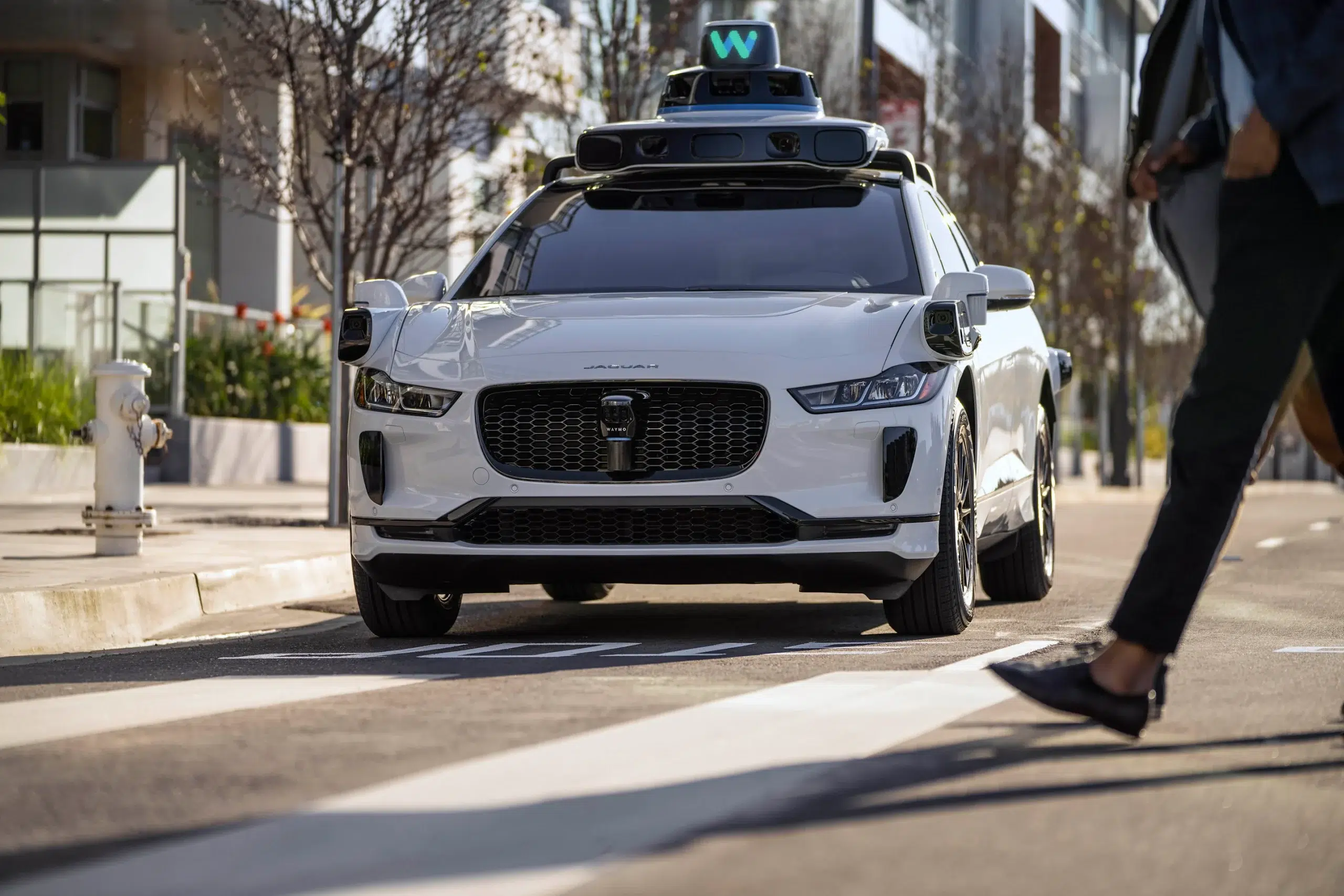New York City has granted Waymo its inaugural autonomous vehicle testing permit, marking a significant milestone in the deployment of self-driving technology in one of America’s most challenging urban environments. The announcement, made by Mayor Eric Adams and Department of Transportation Commissioner Ydanis Rodriguez on August 22, 2025, represents the first time the city has authorized autonomous vehicle testing within its boundaries.

The permit allows Waymo to deploy up to eight Jaguar I-Pace vehicles in designated areas of Manhattan and Downtown Brooklyn through late September 2025.
Under New York State law, each vehicle must maintain a trained safety specialist in the driver’s seat at all times, prepared to assume control when necessary.
After the initial pilot period concludes, Waymo may apply for an extension to continue testing operations.
Waymo’s application underwent extensive review under the city’s comprehensive safety framework, established in 2024 by the Adams administration.
The review process required coordination with first responders, submission of detailed testing plans, documentation of vehicle operator qualifications, and demonstration of cybersecurity compliance aligned with industry best practices.
The approval comes after years of development of Waymo’s safety methodology, as detailed in their recent research publication on autonomous vehicle deployment readiness.
Waymo’s safety determination process employs twelve methodological criteria spanning architectural, behavioral, and operational domains to evaluate system readiness.
The company’s approach centers on demonstrating “absence of unreasonable risk” through comprehensive evaluation methods including collision avoidance testing, predicted collision risk analysis, rules of the road compliance assessment, and vulnerable road user interaction studies.
These criteria collectively form what Waymo terms a “signal-based evaluation” that combines quantitative and qualitative measures to assess residual risk systematically.
Waymo’s safety framework requires both prospective analysis through simulation and closed-course testing, and retrospective validation through post-deployment monitoring.

The company has completed over 10 million rides across five major U.S. cities, accumulating 71 million rider-only miles without human drivers through March 2025.
Real-world data supports Waymo’s safety claims. Analysis of the company’s operations shows significant reductions in crash rates compared to human drivers.
Across all operating locations, Waymo demonstrates an 88% reduction in serious injury crashes, 79% reduction in airbag deployment crashes, and 78% reduction in injury-causing crashes per million miles driven.
The safety performance extends to vulnerable road user protection, with Waymo showing 93% fewer pedestrian crashes with injuries, 81% fewer cyclist crashes with injuries, and 86% fewer motorcycle crashes with injuries compared to human drivers in similar conditions.
Insurance claims analysis by Swiss Re found that Waymo reduced property damage claims by 88% and bodily injury claims by 92% over 25.3 million autonomous miles.
Waymo’s readiness determination process incorporates multiple testing methodologies to address the complexity of urban autonomous driving.
The company employs scenario-based testing using its Collision Avoidance Testing methodology, which evaluates predicted collision avoidance capability against behavioral reference benchmarks such as the NIEON (non-impaired, eyes on) model.
The system integrates data from simulation platforms, closed-course testing, and extensive on-road operations to create comprehensive risk assessments.
Waymo’s approach acknowledges that no single methodology provides adequate coverage, requiring synthesis of multiple evaluation streams to achieve systematic risk analysis for complex autonomous systems.
NYC DOT’s permit program requires applicants to demonstrate competency in their autonomous vehicle technology, submit comprehensive testing plans, document vehicle operator training programs, and establish safety protocols demonstrated through previous urban testing experience.
As part of the permit conditions, Waymo must maintain regular coordination with DOT through ongoing meetings and data reporting.
The company must also collaborate closely with law enforcement and emergency services, ensuring integration with the city’s existing transportation infrastructure.
The current permit restricts testing to technology validation only. Commercial for-hire service remains prohibited under New York City Taxi and Limousine Commission rules, requiring separate licensing for any future passenger operations.
This separation between testing authorization and commercial deployment reflects the city’s cautious approach to autonomous vehicle integration.
Waymo’s testing will focus on validating system performance in New York’s dense urban environment, characterized by complex traffic patterns, diverse road users, and challenging weather conditions.
The city’s approval acknowledges these operational challenges while maintaining strict safety oversight through its comprehensive regulatory framework.

The New York City permit represents a critical expansion for Waymo, which currently operates commercial services in Phoenix, San Francisco, Los Angeles, Austin, and Atlanta.
The company has announced plans to extend operations to additional Northeast markets, including Philadelphia, as part of its national expansion strategy.
The city’s regulatory framework, described as the nation’s most stringent, may serve as a model for other major metropolitan areas considering autonomous vehicle integration.
The permit approval has garnered support from various stakeholders. Mothers Against Drunk Driving endorsed the development, noting autonomous vehicles’ potential to prevent deaths and injuries from behavioral factors including impaired driving when deployed responsibly.
Assemblymember Brian Cunningham emphasized that the measured approach allows preparation for statewide autonomous technology integration while ensuring benefits in transportation equity and economic opportunity.
Industry observers note that successful testing in New York City’s complex environment could accelerate autonomous vehicle adoption across similar dense urban markets.
The approval reflects broader recognition of autonomous vehicle technology’s potential to address urban mobility challenges while maintaining focus on public safety as the paramount concern in deployment decisions.
NYC Mayor’s Office Press Release
Article Last Updated: August 26, 2025.


